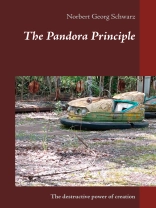Growth is commonly regarded as something positive, as something to be rewarded. At the same time the growth of the global population and economy leads to depletion of resources, violent competition and consequently, to the impairment of the quality of life on earth.
Science has opened innumerable Pandora boxes, and humankind has no option but to live with the consequences. Once any item of knowledge has entered the world, it is practically impossible to remove it from the world. We could do away with all weapons of mass destruction, but still could not remove the fundamental ability of humans to construct such weapons. Progress is always accompanied by destruction. Where cities grow nature must give way, when a new technology arises it pushes aside older technologies, and where one group of humans appropriates resources it deprives another group of humans of them.
The discovery of fossil fuels as energy resource around 250 years ago has allowed for tremendous growth and progress in a very short time span. If the current CO2 emissions continue, the atmospheric CO2 concentrations will reach concentrations that negatively affect cognitive functions within the lifetime of our children and reach lethal concentrations within a few generations. Methane is a 25 times more potent greenhouse gas than CO2 and might apart from human economic activities be released in large amounts from melting permafrost areas of the earth. With melting of polar ice shields global warming will accelerate as sun energy that previously was reflected through the albedo effect gets saved in the oceans.
With depletion of resources we think of resources to keep up our civilisation such as oil and gas. However we also have to consider the depletion of resources essential for the pure survival of human beings, such as water. While human populations grow exponentially , ground water levels shrink nearly everywhere.
If we are not facing near term human extinction we will at least face enormous challenges in the coming years with potential mass dying in some regions of the world, most of them probably in poor developing countries of the tropics.
The creative power of destruction is the destructive power of creation.
关于作者
As an infectious disease epidemiologist at the Bernhard Nocht Institute for Tropical Medicine in Hamburg, Norbert Schwarz concentrates his attention on the risks from epidemics and health for individuals and groups. In this book he sheds light on existential risks for the largest possible group of Homo sapiens, humankind.












